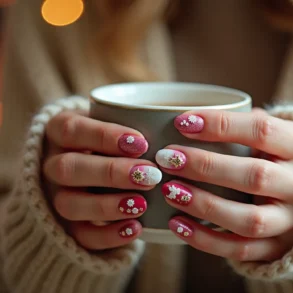“Something horrible is about to happen,” a slightly buzzed Frida (Naomi Ackie) tells Slater King (Channing Tatum) in Blink Twice. She is reclining on a towel as her champagne glass is refilled, the gentle glug and swirling fizz echoing eerily between her words. She’s smiling as she delivers the line, but her focused gaze reflects the sharpness of her instinct. Slater looks back at her with genuine confusion before exhaling, vape smoke coursing from his nostrils.
Zoë Kravitz’s directorial debut is an exercise in waiting for the other shoe to drop. Everyone is perpetually a little drunk, a little stoned, developing mysterious bruises, and very unclear on what day of the week it is as they sink into the extravagant luxuries of a tropical private island.
The thriller follows caterwaiter Frida and her best friend, Jess (Alia Shawkat), after they are invited by the famed (and formerly canceled) tech-mogul billionaire Slater King to visit his private island. We never learn what it was, exactly, that Slater did to lose public favor; the more important thing is that he is working on himself. Slater King is the kind of rich guy who seems to mean well: he does yoga, keeps a gratitude journal, and says things like “therapy changed my life.”
Once on the island, the besties join a small cohort of what appear to be friends and confidantes of Slater’s, played by Adria Arjona, Haley Joel Osment, Christian Slater, and Kyle MacLachlan. All agree to the innocuous terms of their stay: they give up their cell phones upon arrival and dress in the all-white wardrobes they are gifted. It’s all a little cult-like, but harmless, right?
Kravitz began writing the script for Blink Twice in early 2017, at the dawn of the #MeToo movement, when ideas about gender and power were top of mind. Growing up in and around the entertainment industry, she had frequented rooms with powerful people from an early age, and come to understand the unspoken rules of being a woman in such spaces. As heinous revelations about powerful men came to light, she completed the script with her writing partner E.T. Feigenbaum.
Despite its real-world influences, Blink Twice is intentionally vague in its world-building: watching it won’t remind you of any particular notorious transgressor, but all of them. The comparisons this film will draw are many: On its face, it belongs to the canon of dramas like Triangle of Sadness, The Menu, Saltburn, and The White Lotus that caricature the uber-rich. But it is also very much a story about oppression, betrayal, and violence, and in several instances it evokes the terrors of Jordan Peele’s Get Out. The eerie sensory overload has a lot to do with that: The colors are saturated to the max, and the all-white outfits sharply contrast with the rubber-duck yellow cocktail umbrellas, the single raspberry plopped into the glass of bubbly, the blindingly green flora. The scrupulous sound design—picking out the rubbing of a cricket’s wings or the slap of a mosquito—also let us know that all is not quite right.
This post was originally published on this site be sure to check out more of their content.








